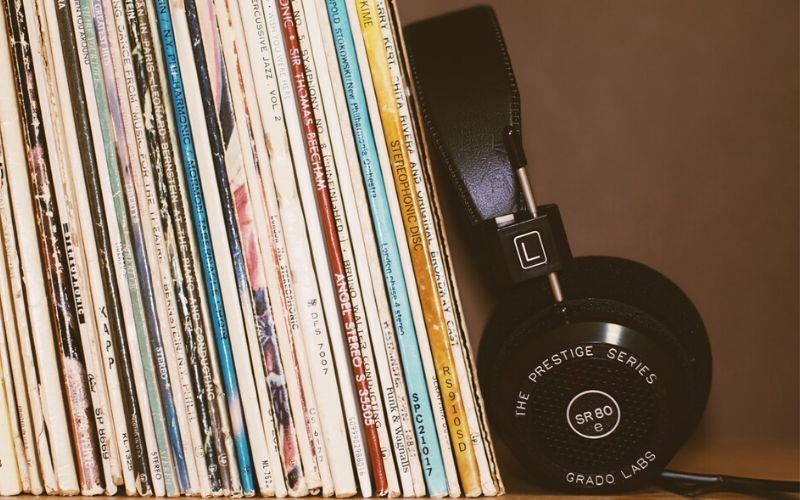AVTOR: JOSH ROCCHIO
Whenever I’m unexpectedly called upon to start speaking a language that, on paper at least, I’m fluent in, I remember a great scene from the late 1980s classic American television series The Wonder Years. Our protagonist Kevin, played by a young Fred Savage, sits in French class, which has been joined by the new girl in school, predictably a blonde on whom he develops an instant crush. Her French, as most other things about her, is way out of Kevin’s league, but today he’s feeling good.
As the new girl is called upon to recite some verse, a love poem, Kevin has an epiphany, realizing in an instant why French is the language of diplomacy and love. He understands every word of her recitation and, in his daydream, fantasizes that the words are meant for him. Thinking to have finally won her heart, he leaps up and responds to her seemingly affectionate words. Affecting the most romantic accent a clueless 12-year-old can muster, he responds with the only words he knows: Voulez-vous du beurre? (Would you like some butter?).
If you don’t speak French, like me, you may have missed the extra funny detail that the verb form is even in the formal register, while the passionate verbs in the recitation were of course in the informal. Now, I just said I don’t speak French, and I’ve told my wife the same. Nonetheless, I was able to communicate just fine when we traveled to Montreal, a famously hardline Francophone city. My wife, mind you, is not easily impressed, and she was more angry that I had deceived her than pleased by my apparent linguistic prowess.
This anecdote perfectly shows how relative our perceptions of fluency are: an innocent bystander might have been impressed by my mumbled, stuttering, unconjugated mashups of the closest Latin (a language I do happen to know quite well) word I could think of, quickly ciphered through a plausible set of Frenchy sound changes along with the removal of a bunch of final syllables for good measure, but my Canadien interlocutors saw me for the blatant con artist I was. Nonetheless, my attempts were tolerated, and we were able to conduct our exchanges with relative ease. It is the aim of this blog post to teach you how to do the same, namely barely communicate with natives in your target language while seriously wowing naive onlookers.
Filler and Courtesy
It started with a sign in Rome’s Trastevere district, the most fun, quirky, and artistic neighborhood in the Eternal City. A simple, tongue-in-cheek statement about manners and consumer habits caught on like wildfire across the whole of Romance countries. The sign read only: “Un caffè, €3. Buongiorno, un caffè, €2. Buongiorno, un caffè, per favore, €1. (A coffee, €3. Hello, a coffee €2. Hello, a coffee, please, €1)”. That’s right, in Rome good manners can get you a cup of coffee cheaper than in downtown Ljubljana!
This sign tells us more than just about manners, though; it’s really a mini textbook in how to conduct social transactions in Italian, i.e. what an Italian-speaking native expects at the beginning of an interaction. All languages have a set of these fixed phrases that lubricate our encounters with others. It is a great idea to find a list of all your greetings and commit them to memory. One great thing here is that, as fixed expressions, you don’t have to worry about any conjugation, declension, or other inflection. Your brain isn’t focused on grammar, but just on simply delivering a standard set of utterances and replies. Plus usually short interactions in a cafe don’t last long enough for your interlocutor to figure out if your accent is just from some hills in the west of the country or, in fact, non-native. Think Brad Pitt and “bawnjorno!”
While you’re in the cafe, such small establishments are great places to pick up on some other examples of filler. Anytime we went out to a pizzeria or gelateria, my roommate in Rome, a medical assistant from Lecce, used to sigh slightly, pat his stomach with his hand, and twice mutter absentmindedly, “facciamo, facciamo…” (with the sense of “hmm, let’s see now” or “hmm, what should we do…”), though I certainly never saw that in any textbook. Sit close to the counter, listen intensely, and then try and copy some of the patterns you heard verbatim. Remember, this is language at the level of parrot, just thoughtless recitation of key words.
Songs, Poems, and Memes
Growing up around Washington DC in the 90s, one of the most popular radio stations was HFS, whose program was dedicated to the alternative/grunge/rap rock scene that was so popular in that decade. Overnight one day in 1999 the station was sold and the frequency rebranded as El Zol, “the most powerful Spanish radio station in the area”, broadcasting primarily Mexican and El Salvadoran crooners and beat-heavy reggaeton. A lot of us at the time joked that a better name would be “El Korazon”, namely because roughly 9 of 10 songs featured at least one passionately belted out “¡¡¡mi cooorrrraaaazzzzzooooon!!!” in the chorus.
It was a silly joke at the time, but it formed an inkling at the time about how powerful songs (and of course poetry) can be in teaching and learning language. Today, for instance, I can sing plenty of those songs from El Zol (¡Dame más gasoliiina!), or recite in a perfect accent the loveliest line ever written in poetry, Neruda’s “quiero hacer contigo lo que la primavera hace con los cerezos” (I want to do with you what the spring does with the cherry trees). Someone overhearing me might even think I knew any other single line from that poem ;).
But if called upon to speak Spanish in a conversation this very second, I wouldn’t get much further than Kevin and might eke out “¿quieren ustedes un poco de mantequilla?” Anything more would take 2 days in a Spanish-speaking country or 2 cervezas – and personally I’m OK with either of those, if you’re offering. 😉 My point is, take advantage of music and poetry, find beautiful or interesting lines and commit them to memory; in addition to having a lot of quotes and one-liners, you’ll be surprised how many grammatical structures you pick up from the lyrics.
Memes are another fertile source of linguistic knowledge. I don’t necessarily mean internet memes (though those are great sources of linguistic knowledge, too), but cultural memes. These can be jingles from commercials, famous lines from movies, or even far-reaching campaign slogans. One that sticks out in my head was “¡Sí, se puede!”, long the slogan of the United Farm Workers labor union in the USA, which was adopted by the Spanish front of Barack Obama’s presidential campaign in 2008. It was so widely spread that it seeped into pop culture, and tons of gringos effortlessly ended up learning how to say “Yes, we can/Yes, it can be done” in Spanish. In Slovenia I’m reminded of the classic požigalec episode from Velenje, and the million variations of “Kaj ti bo torba, če imaš kolo?” that followed in the years afterward. Memes provide us with templates that we can either repeat or vary by replacing semantic elements.
Power Verbs, Persons, and Tenses
While much of the advice I’ve given so far has centered on mastering set expressions and repeating them word-for-word, you will inevitably have to end up conjugating or declining something sooner or later. So, be smart about it, and pick 5-10 verbs that do the heavy lifting in a language. Generally these are verbs for “be, do/make, be able, have, want” extended to include “know, see, say, give, do”. Figure out how to conjugate those verbs for first person singular and 2nd person plural (especially in Europe, as 2nd person plural doubles as the formal variant of the 2nd person singular, so you kill two birds with one stone).
Similarly while eventually you should learn all the verb forms in all their tenses, it’s a good start to just learn the present and one past tense (I get through 90% of my wine-addled Italian using the present and the passato prossimo, and I’ve never gone hungry (or sober, apparently) for un giorno in Italy. Think about a stereotypical sentence from a Chinese native speaking English: “I go to the store tomorrow.” Perfect? No. Perfectly understandable? Absolutely. The 5 verbs above and the present tense along with a few adverbs of time can take you unbelievably far. Do you see what I’m saying? Are you able to be a person who knows how to have just a few verbs in your vocabulary? Make sense? I say yes 😉
Genres and Areas of Interest
A last suggestion is based on observation that, even in our native languages, we are much more capable of talking about certain subjects than others. Exotic animals, technical words for ingredients and kitchenware, philosophy, etc. can be among the last semantic areas we tackle when learning a foreign language. So what? You think every native speaker of English knows what a Bundt pan is or can wax poetically about Kant and Hegel? Heck no, they can’t, and expecting that you will be able to in your target language without a couple years of practice is just being unfair to yourself.
Similarly, certain genres (of literature, music, etc.) and formats are more accessible than others. For instance, the first novel I read in Slovenian from cover to cover was Drejček in Trije Marsovčki (for non-Slovenians “Drew and the Three Little Martians”). It might seem counter-intuitive, as this novel is written for young readers, and should theoretically feature small words and basic sentence structures. A well-written newspaper like Finance or Delo should, again theoretically, be harder for someone learning the language.
The reality is that such newspapers actually contain a bunch of polysyllabic “international” words, mostly derived from Latin and Greek, words that are the exact same as in English, save for the endings. Little Drew’s martians, on the other hand, speak a slightly poetic language. For example, I doubt the words “say” or “speak” are in there at all, only “exclaim”, “declare”, “utter”, “holler”, etc. If faking fluency is your goal, perhaps avoid children’s literature at the beginning!
You should, however, be eminently capable of speaking about your interests and hobbies. Personally I watched a lot of soccer when I first moved to Slovenia; I already knew who Messi and Xavi and Iniesta were, and I knew the rules of the game in great detail, so what I was really listening to was the use of prepositions (proti Xaviju, v sredino, na gol…) and expressions (hiter kot strela, smola, etc.). I even learned a great lesson in using the genitive (drugi sklon) in negation; on one occasion where it looked for all the world like the ball went in the net but then it became apparent that the striker missed, the commentator started to exclaim in excitement and then quickly changed mid-word: “GOOOOOOOOOOLa ni…”.
Again, the point is that I wasn’t listening to the language to hear what was going on, but specifically how to talk about what’s going on. So great, I could go to the bar and watch a football game, and talk with the guys about the ongoing season, but just IMAGINE the first time I needed to go to OBI/Bauhaus/Merkur to get a screwdriver: “umm, excuse me, y’all got that thing that you kinda, y’know, twist when you need to put one thing like permanently to another thing?” Fluency in one domain does not equal fluency in another, and that’s just fine! Center on some areas and fields that make you happy, and learn how to talk about them. You can always make a little twisty motion with your wrist when you need a šraufenciger. 😉
Body Language
The real point of everything I’ve written here so far is that fluency is relative. We can be very capable in one genre or field of interest, while stuttering in another. We may seem fluent one day, but find ourselves completely incapable of expressing ourselves the next day. If you follow my advice and copy the filler you hear around you, use the power of song and poetry to commit lines to memory, master a small handful of verbs, and concentrate on expanding your vocabulary regarding topics that interest you, you can “fake” fluency to a great extent. And to attain fluency, just like so many other domains of expertise, all you have to do is fake it enough times until you make it.
At the end of the day, though, you can throw out nearly everything in this blog post if you aren’t willing to learn one key component to communication: a broad smile and confident posture. I have hacked my way through countless conversations in a dozen countries and the common thread to all of them was a friendly look on my face with my head held high, perhaps making blunder after blunder, but still unafraid to keep going. Do the same and you’ll increase your fluency in an instant.
JOSH ROCCHIO
LANGUAGESITTER® ZA ANGLEŠČINO
|

















